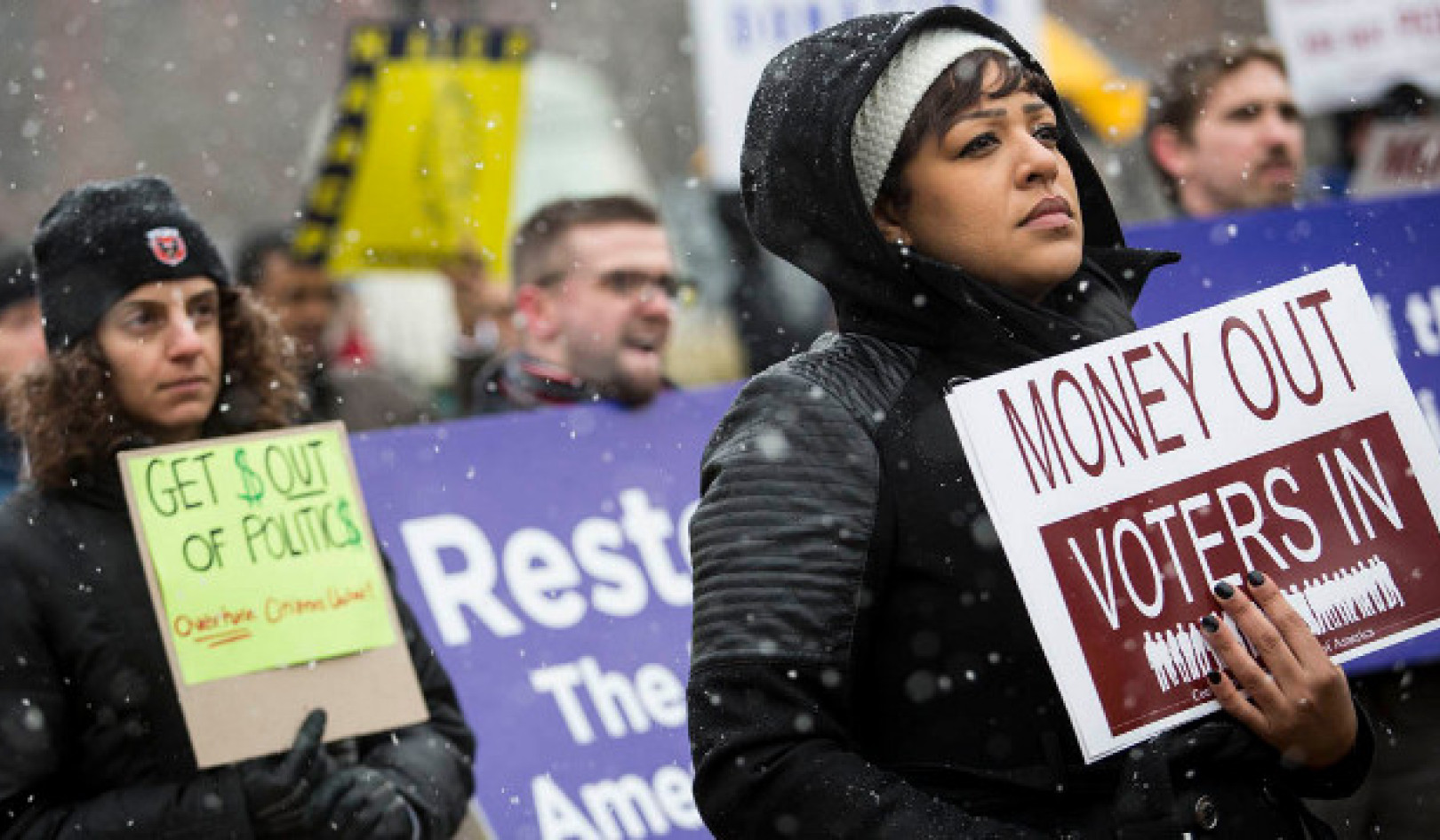
“Who is going to end up making all the money in the end if Obamacare continues to be in place?” Republican National Committee chairman Reince Priebus growled Monday on Sean Hannity’s Fox News show. “It’s going to be the big corporations, right? And who gets screwed? The middle class.”
The Republican Party makeover is breathtaking. Now, suddenly, instead of accusing Democrats of being “redistributionists,” the GOP is posing as defender of the middle class against corporate America — and it’s doing so by proposing to do away with the most progressive piece of legislation in well over a decade.
Paul Ryan’s new budget purportedly gets about 40 percent of its $4.6 trillion in spending cuts over ten years by repealing Obamacare, but Ryan’s budget document doesn’t mention that such a repeal would also lower taxes on corporations and the wealthy that foot Obamacare’s bill.
According to an analysis by the non-partisan Tax Foundation, Obamacare redistributes income from the wealthy to the middle class. This is mainly because it hikes Medicare taxes on the top 2 percent (singles earning more than $200,000 and couples earning more than $250,000, including their investment income).
This year, for example, families in the top 1 percent will be paying about $52,000 more in Medicare taxes, on average, than they paid in 2012.
And where will the money go? Not to pay for the healthcare of poor families; most of them already receive Medicaid. The rich will be helping middle and lower-middle class Americans.
Obamacare also imposes some taxes and fees on insurance companies, drug makers, and manufacturers of medical devices. Here again, most of this will be borne by affluent Americans, who own most shares of stock (assuming the taxes and fees come out of corporate profits). And, again, beneficiaries are in the middle and lower-middle class.
In other words, Mr. Priebus has it exactly backwards. If Obamacare were repealed, who would end up making all the money? Big corporations and the wealthy. Who would get screwed? The middle class.
The rest of Ryan’s budget plan also runs counter to the new Republican thematic. Not only does it turn Medicare into vouchers (“premium support” in Republican-speak) whose value can’t possibly keep up with rising healthcare costs but it also dramatically reduces spending on education, infrastructure, and much else the middle class depends on.
Meanwhile, it redistributes upward, cutting the top tax rate for individuals down to 25 percent — a bigger tax cut for the top than even Mitt Romney proposed — and the corporate tax rate down to 25 percent, from 35 percent today.
Ryan would pay for these tax cuts by “closing tax loopholes,” but — where did we hear this before? — his budget doesn’t say which loopholes, or even hint at what it would do with rates on capital gains and dividends. Like Romney’s plan, it leaves all the heavy lifting to Congress.
The reality, of course, is that the only possible way Ryan could pay for his proposed tax cuts for the wealthy and corporations would be to raise taxes on the middle class.
Don’t expect the Chairman of the Republican National Committee, or other Republicans reading from the same talking points, to admit any of this.
But if you look at what they’re proposing rather than what they’re saying, the GOP isn’t really interested in balancing the budget at all. It’s out to redistribute income and wealth — to the best-off Americans, from everyone else.
If any party is into redistribution, it’s the Republicans. And Paul Ryan is leading the charge.
About the Author
 ROBERT B. REICH, Chancellor’s Professor of Public Policy at the University of California at Berkeley, was Secretary of Labor in the Clinton administration. Time Magazine named him one of the ten most effective cabinet secretaries of the last century. He has written thirteen books, including the best sellers “Aftershock" and “The Work of Nations." His latest, "Beyond Outrage," is now out in paperback. He is also a founding editor of the American Prospect magazine and chairman of Common Cause.
ROBERT B. REICH, Chancellor’s Professor of Public Policy at the University of California at Berkeley, was Secretary of Labor in the Clinton administration. Time Magazine named him one of the ten most effective cabinet secretaries of the last century. He has written thirteen books, including the best sellers “Aftershock" and “The Work of Nations." His latest, "Beyond Outrage," is now out in paperback. He is also a founding editor of the American Prospect magazine and chairman of Common Cause.
Books by Robert Reich
Saving Capitalism: For the Many, Not the Few -- by Robert B. Reich
 America was once celebrated for and defined by its large and prosperous middle class. Now, this middle class is shrinking, a new oligarchy is rising, and the country faces its greatest wealth disparity in eighty years. Why is the economic system that made America strong suddenly failing us, and how can it be fixed?
America was once celebrated for and defined by its large and prosperous middle class. Now, this middle class is shrinking, a new oligarchy is rising, and the country faces its greatest wealth disparity in eighty years. Why is the economic system that made America strong suddenly failing us, and how can it be fixed?
Click here for more info or to order this book on Amazon.
Beyond Outrage: What has gone wrong with our economy and our democracy, and how to fix it -- by Robert B. Reich
 In this timely book, Robert B. Reich argues that nothing good happens in Washington unless citizens are energized and organized to make sure Washington acts in the public good. The first step is to see the big picture. Beyond Outrage connects the dots, showing why the increasing share of income and wealth going to the top has hobbled jobs and growth for everyone else, undermining our democracy; caused Americans to become increasingly cynical about public life; and turned many Americans against one another. He also explains why the proposals of the “regressive right” are dead wrong and provides a clear roadmap of what must be done instead. Here’s a plan for action for everyone who cares about the future of America.
In this timely book, Robert B. Reich argues that nothing good happens in Washington unless citizens are energized and organized to make sure Washington acts in the public good. The first step is to see the big picture. Beyond Outrage connects the dots, showing why the increasing share of income and wealth going to the top has hobbled jobs and growth for everyone else, undermining our democracy; caused Americans to become increasingly cynical about public life; and turned many Americans against one another. He also explains why the proposals of the “regressive right” are dead wrong and provides a clear roadmap of what must be done instead. Here’s a plan for action for everyone who cares about the future of America.
Click here for more info or to order this book on Amazon.




























